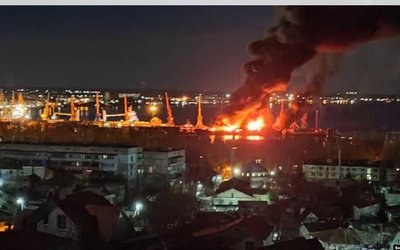In 1995, I was in Beijing as a young journalist from Nepal attending the fourth world conference of women. The euphoria and the power of collective movement building, in Beijing, was such that after returning from Beijing I left working for the mainstream media which was predominantly male stream, as I felt the strong urge to work directly with, and for those women and girls facing discrimination and exploitation. Since then there has been no turning back.
I have worked directly with survivors of violence, founded women’s shelters, worked at the grassroots to the national and global level through various NGOs and Networks I have co-founded, as well as partnered with government entities for promoting gender equality. The groundbreaking Beijing Platform for Action has been a strong guiding framework throughout my journey as an advocate for gender equality and peace, and 25 years later remains even more relevant to protect human rights and gender equality
Today I am in the CEDAW Committee and I strongly feel that I am in the right place as this is where I can assess the impact of the commitments made in Beijing. The work of the CEDAW Committee has been crucial in strengthening the accountability of State parties in accelerating the implementation of the Beijing commitments. With its legislative and binding framework the Convention is the strongest mechanism to promote and protect women’s human rights
Through its 189 States parties and the hundreds of activists, civil society organizations and regional organizations which are constantly advocating for its implementation, the CEDAW Convention has become a leading force in ensuring the promotion, protection, and fulfillment of the powerful message that “Women's rights are human rights” fostered by the Beijing Platform for Action. The Convention offers a unique binding and human rights-based foundation for furthering the full implementation of the BPFA
We cannot implement if we cannot measure. The CEDAW Committee through its constructive dialogue and recommendations helps member states to measure their progress and identify areas where efforts need to be intensified. CEDAW tells member states where they stand on these commitments and reinforce their commitments for further action. So this is where I see the inter connectedness of Beijing commitments and the actual change that takes place on the ground, be it constitutional amendments or legislative and policy reforms for addressing all forms of discrimination and establishing gender equality.
The CEDAW committee is a voice for the millions who do not have a voice. The progress brought about through the CEDAW mechanism has been life changing for many young generations.
With its legislative framework the CEDAW Committee is helping member states in building their accountability to –
A world free from violence, stigma and stereotype
A world where there are no child marriages
A world where there is equal pay for equal work
A world that establishes lasting peace and security of all
While we have seen achievements in the last twenty-five years, we have also witnessed backlash against those gains and structural barriers underlying women’s oppression. Globally, one in three women still experience sexual or physical violence in their lifetime, women are paid less than men for doing the same work, and they continue to bear a disproportionate burden of unpaid care work. Hundreds of thousands of women still die each year from complications in pregnancy and childbirth, and less than a quarter of members of parliament are women.
Therefore, we need to create effective institutions and allocate adequate resources for women to realize their rights. We need to listen to the voices of women and young girls. The different needs of women, in the public as well as the private sphere, must be addressed
The Asia Pacific region in its review of the Beijing+25 has identified 6 priority areas to advance women and girls rights in 2020 and beyond
- Economic empowerment
- Social services and Universal Health Care
- Freedom from violence stigma and stereotype
- Participation in Decision Making
- Peaceful and inclusive societies
- Climate action and resilience building
The realization of these agendas requires transformative shifts, integrated approaches and new solutions. A significant message which needs intensified global attention is that ensuring rights of women and girls contributes to development and peace. 2020 should mark a center stage for accelerating actions on commitments. It is in this regard that the CEDAW Convention is a critical instrument to ensure the full promotion and protection of women’s rights and substantive gender equality.
The World cannot afford to regress. We have to progress and strengthen foundations and treaty body mechanisms for ensuring equality, development and peace as aspired by the Beijing Platform for Action and for making the specific commitment to “leave no one behind” a reality. Together, we can do it.
Excerpts of the statement Rana read at the High Level Panel Discussion on Beijing+25 in Geneva.
















